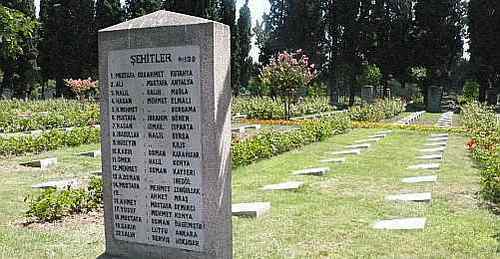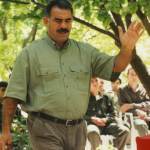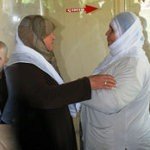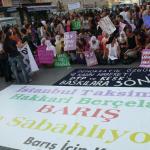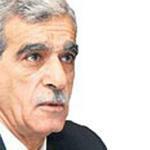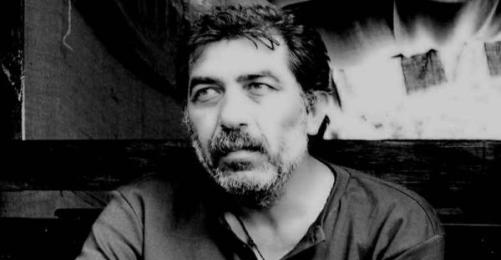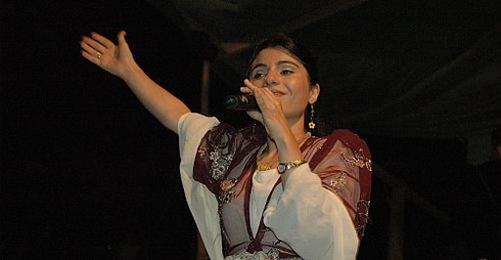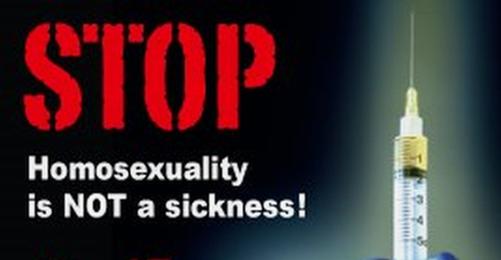Thousands of graves, all of them with a Turkish flag, with flowers, mostly roses. Although the graveyard is in an area of Istanbul with heavy traffic, it is very quiet here.
I am at the Edirnekapı graveyard for fallen soldiers, the "şehitlik". I walk around the gravestones in order to find someone to talk to, to hear how people who come here have taken the government's Kurdish initiative.
In the nearly-empty graveyard I see a woman reciting the Yasin-i-Şerif sura from a book in her hand at her son's grave. I sit down on a bench nearby.
A prayer for the dead
Two soldiers sit down across from me. First I ask for a light, then I wish them my condolences.
They say, "We have no relatives here, but everyone here died for their fatherland. We are soldiers, too, and we owe them. Whenever we can, we come here and say an El Fatiha prayer for their souls."
[...]
Support for peace
I ask, "They are talking about peace. What do you as soldiers think about it?"
One of them answers as if he had just been waiting for that question:
"It is difficult to be a soldier, especially in the east and southeast. This issue has to end, so that mothers and fathers don't have to worry about their children. I support peace, of course."
The other one says, "Those who say that they want war have never felt pain, I think. No one who has experienced such pain wants war to continue."
Hearing sentences about peace, especially on a military graveyard, makes me hopeful.
"Mothers have made peace"
As we are talking, the mother who was praying at the graveside comes up to us. She must have heard what we were talking about, and she wants to say something: "Mothers have made their peace, we saw that in Diyarbakır. When mothers have made their peace, has anyone else got the right to speak?"
She lost her son "on duty."
"My pain is very great. Whatever I do, it does not end. Whenever I feel angry, I tell myself that it was from Allah, and I calm down."
I hesitate to ask her what she thinks about the Kurdish question, peace, war...But she starts to talk by herself:
"I was so angry, I cried a lot, I cursed the terrorists and their families. But then I said that they are also human, they are also mothers like me. Then I thought that it should end, that no mothers should have to cry like me. My anger is slowly disappearing. I have no hatred left."
[...]
"Dying, dying..."
After walking a few more minutes, I meet two women sitting on a bench and smoking. Because of the camera around my neck, they ask me whether I am a journalist.
[...]
One of them says, "I don't know how it will be done, after so much blood...It is difficult to forget, but is there a choice? Dying, dying, where does it end?"
The other woman says, "When I see all the people lying here, I want it to end. All my anger and hatred calms down when I see the graves of these young people. Such a shame. So many people died for nothing. They let them die."
[...]
Back to clichés
I take a taxi to go back to the office. [...] The taxi driver turns up the volume of the radio, where the Kurdish initiative is being discussed, and the taxi driver is keen to talk.
It is as if the cassette has been rewound. We return to the clichés of years ago.
"The AKP is selling the soil of the fatherland. It is handing it out to Israel for money, and to the Kurds because the USA want it. Soon they will give more to the Greeks, Armenians and Arabs."
I ask, "Are you not happy that they are talking about peace?"
"That is all theatre. They can't see what is behind it."
We return to the beginning of the conversation, of his dislike of Kurds. He gives an "example":
"At school, Kurdish children beat my son. He sits in class with a coat on now."
"Do you really think that it is because your son is Turkish?"
"Of course, as soon as they found out he was Turkish, they started to beat him."
[...]
Turkey's "innocence"
"So many years of anger. They threw people into acid wells. There were unsolved killings, village clearances...don't we also have to understand the anger of the Kurds?"
"Turkey did not do anything, that was the work of small groups. But Kurds are mobilised, from the children to the women. They are creating hostility."
[...]
I get out of the taxi early. The driver gives me "advice": "Read a bit more, find out more about the issue." With a crooked smile, I wish him a good day.
Optimism and difficulties
On my trip, starting in the neighbourhood of Güngören, then Gaziosmanpaşa, and then the graveyard in Edirnekapı, it was clear that the statements by the government and the pro-Kurdish DTP had quickly influenced life. People had started to forget their anger, had said things they had never said before. There is a visible effort. It is impossible not to feel hopeful.
However, the conversation with the taxi driver showed that everything is not rosy. It is impossible for a society which has been knitted together with pain, blood, massacres and fires in recent history to build peace, which it has not experienced, from one day to the next. (BÇ/AG)





